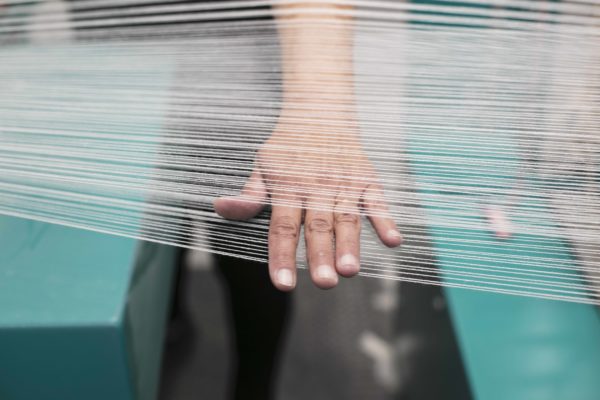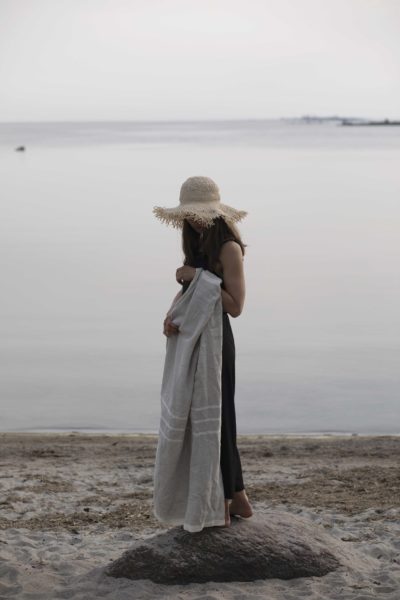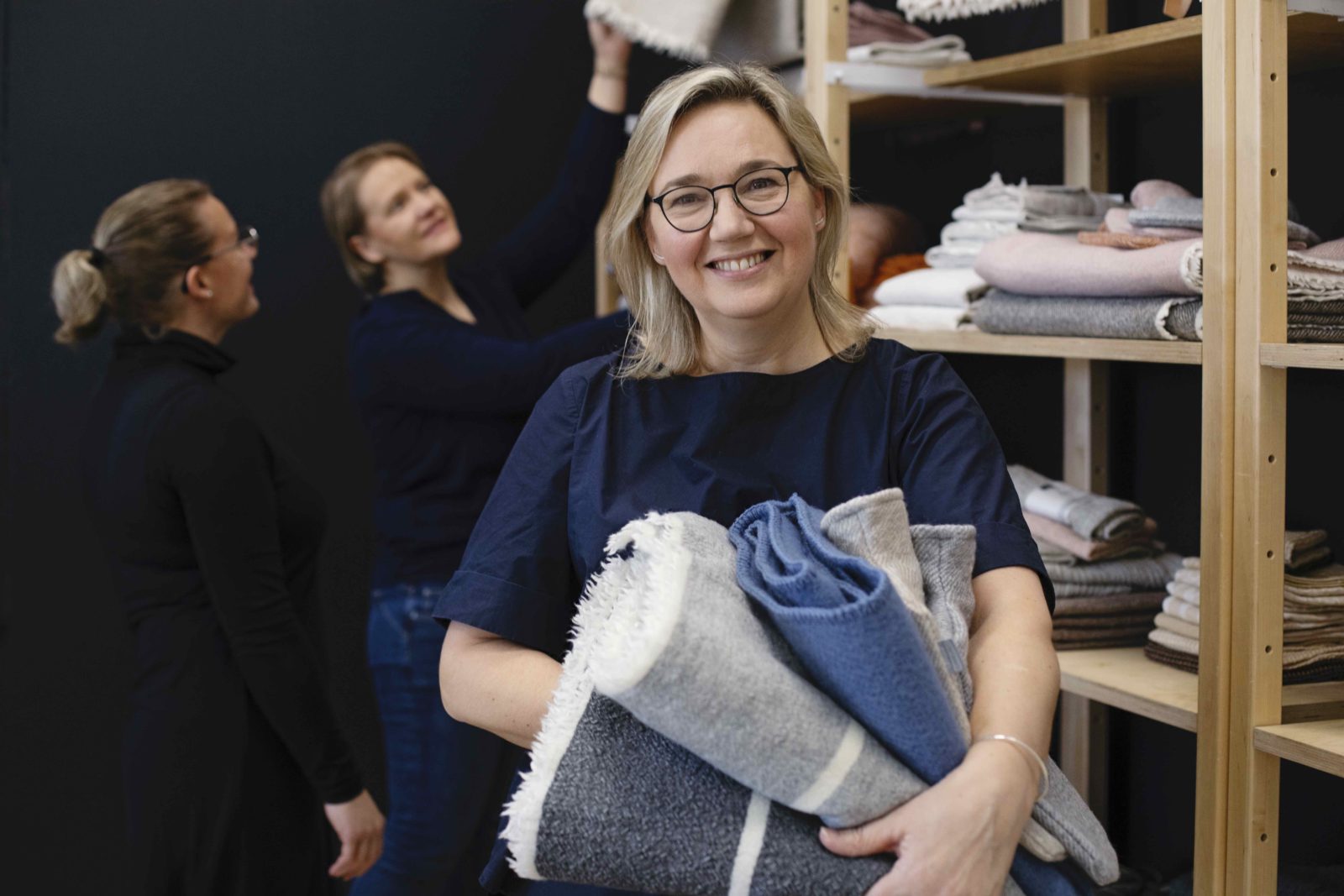Institut finlandais and the textile weaving company Lapuan Kankurit have collaborated successfully for many years. We sat down with one of the owners, Jaana Hjelt, to discuss the history of the company, the currents in the Finnish textile industry and what makes their products so appealing around the world.
Could you tell us a little bit about the history of Lapuan Kankurit?
Lapuan Kankurit is celebrating its 50th anniversary this year as the company was founded in 1973. However, our story goes back over a hundred years to the year 1917 when Finland gained independence. That is when my husband Esko’s, who is our current chief executive officer, grandmother’s father founded a textile factory that produced felt slippers from wool. At the time, they made a lot of wool blankets for the army. Later on, Esko’s father started to work with the company as young as 15 years old. In the 1970’s he decided to take the company in a different direction and develop it to be a more specialised fabricator of textiles, one that would be at the crossroads of art and the textile industry. In 1973 he founded Lapuan Kankurit, a company specialised in weaving patterns into fabric.
I joined Lapuan kankurit at the turn of the millennium when Esko’s parents retired. Now we have been running this business together for over 20 years. Our company has grown a lot, but our main goal is still to develop our techniques further instead of expanding our business. A lot has happened in 20 years!
You have worked with Institut finlandais for a long time, how do you feel about this collaboration between Finland and Paris?
It has been wonderful to collaborate with Institut finlandais. We first came to Paris in 2011 for the Maison & Objet fair. With Institut finlandais we first collaborated in the Koti-project in 2017, the year Finland celebrated its 100 years of independence. Lapuan kankurit supplied the textiles for the little cabins in which people slept. We brought over some journalists and even stayed the night in one of the cabins. We have learned a lot about France and have received important advice during our travels there.
You have another connection to France as the linen used by Lapuan kankurit comes from Normandy. Why did you choose to fabricate it there?
Normandy is in fact responsible for 80% of the world’s linen production. In the beginning of our entrepreneurial days, Finland still had some linen spinning mills but they have since disappeared. We then had to find linen producers from outside of the country. As a growing and developing textile company, we noticed that we were quite lonely in Finland; we had to seek advice, materials and machines from outside of the Finnish borders. At the same time, we came by this organisation called Masters of Linen that is helping to maintain the European linen industry in Europe. That’s when we decided to at least source the linen we use from Europe. We made a commitment to use only linen that is 100% made in Europe.

How does sustainability show in the process of manufacturing your products?
I would say it’s composed of hundreds of small things. There are so many types of responsibility, for example environmental responsibility or corporate responsibility. As a family business our values are naturally quite responsible. The people who work for us are extremely important and of course nature as well since we are using natural materials. Additionally, being sustainable and responsible is a process. I don’t think anyone is ever ready or perfect at that, but it’s the trying that counts. Whether it be a very small or a big decision, like where we order our business cards from; do we want to order them from far away at a cheaper price, or buy them from local suppliers? Sustainability is made up of small things that then form a larger entity.
Being a more sustainable business is also made possible by having our own mill. When one has always been a manufacturer and not the producer, it is tough to even think about how hard it must be to maintain sustainability when one simply doesn’t know the complete cycle of the products, from materials to finished products. We know where our materials come from and we are proud to be able to keep our textile manufacturing in Finland. It would be horrible if all of Finland’s textile production would happen somewhere far away and no one would be able to even see the manufacturing process here. We believe that it’s important to pass on that kind of knowledge and skills.
Lapuan kankurit has multiple resellers in Finland as well as abroad and you have won numerous design prizes. What makes your products appealing around the world?
I think it’s the fact that we are quite different. Our own weaving mill has given us the opportunity to try out various techniques and innovations in a small scale production. That’s basically what our business is all about, making specialty textiles. That combined with Scandinavian design and nature results in something that you cannot find everywhere.
What are the currents in Finnish modern-day textile industry?
Sustainability and green thinking have definitely come to stay. Another one is the circular economy which of course will be very important. We take that into account already in the manufacturing process as we try to avoid cutting waste when sizing our fabrics. If there happens to be some leftover fabric, we make small batches of “zero waste” products with it. We see wool as the material of the future as it is long lasting, self cleaning and can be recycled very easily. With our own spinning mill we can recycle wool that has already been used. Circular economy is filled with possibilities.

Was it always clear to you that you would follow your predecessors footsteps and work in the textile industry?
Esko has always said that he thought that he couldn’t do anything else as he had grown up in a textile manufacturing environment. Me on the other hand, I was passionate about design and internalisation, which I can develop in my current job. Our work combines a lot of our interests and it has always been a passion for us. Rather than focusing too much on the business side, we are passionate about making beautiful textiles in a sustainable way.
What inspires you in your daily life?
I would say that it is the making of new products that excites us the most. Our collaboration with Aalto university is also a huge source of inspiration for us. Through our collaboration, we get to hear valuable insights on the textile industry from the students. It gives the company lots of new energy as they help us keep up with the trends and currents of the time. Sometimes the students stay at our weaving mill for a week to learn about the manufacturing process. With this collaboration, we have had the opportunity to meet incredible designers that have designed beautiful textiles for us. We think of ourselves as kind of a springboard for young designers and we are very proud to be able to follow their progress.
Interview: Helmi Anttila
